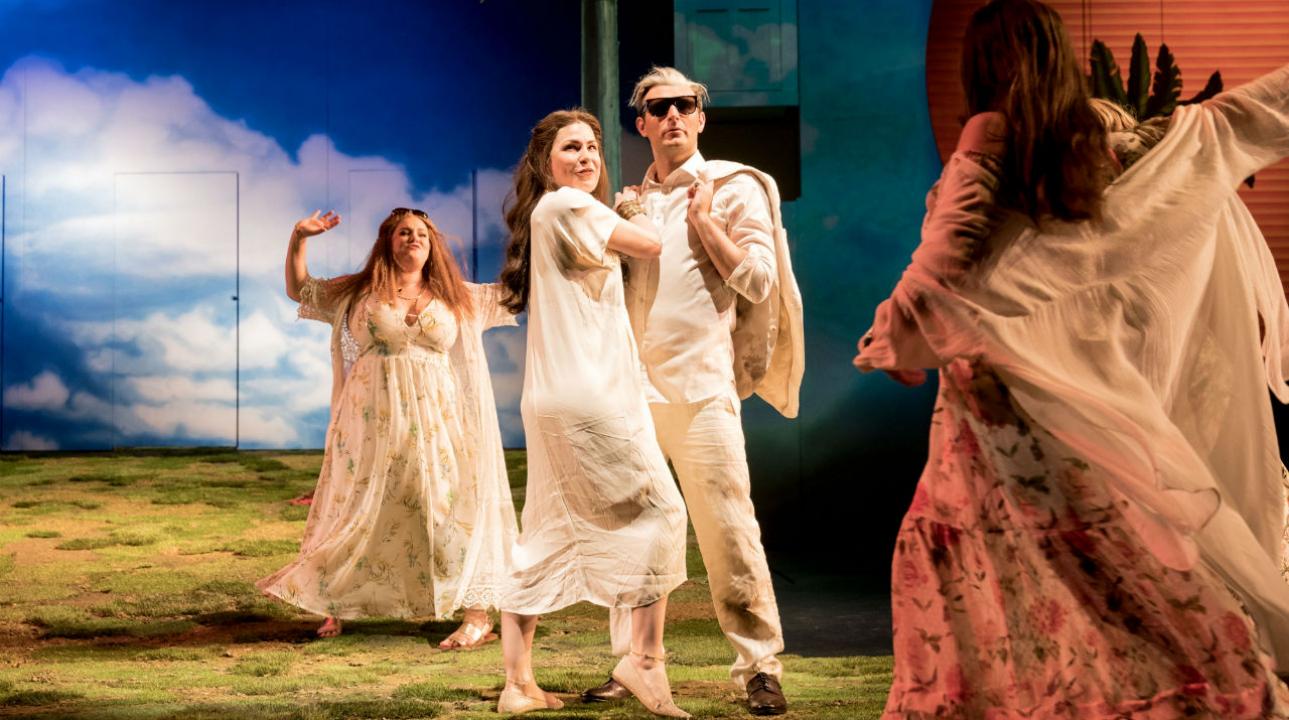Peter Gynt, National Theatre review: A mighty achievement – but with strings attached
James McArdle is dazzling in this laugh-out-loud, feel-bad production of Henrik Ibsen’s 1867 play

The magnetic young actor James McArdle was in his mischievous/despairing element a couple of years ago as Platonov, the title character in David Hare‘s brilliant adaptation of an early Chekhov play, directed by Jonathan Kent. For the same team, he is now being no less dazzling, owning the Olivier stage for an unflagging three and a half hours as the incorrigible fantasist, who here goes by the Anglicised name of Peter, rather than Peer Gynt.
In fact, the show is billed as “by David Hare after Henrik Ibsen”. Authorial hubris? No: for my money, in its black hilarity and acute understanding of how the modern world has demeaned the concept of the “self”, this production offers the most laugh-out-loud, feel-bad version I’ve seen of this astonishing, ahead-of-its-time phantasmagoria. It comes, though, with certain strings attached.
McArdle is cornering the market in sexy, irresistible s***s. Platonov is a negiligent ladykiller who knows deep down that his amoral behaviour is ultimately doomed. By contrast, McArdle’s Peter is in compulsively prattling denial that ultimate authenticity exists. His talk is a non-stop haemmorrhage of defensively vainglorious yarns. Hare’s version latches fruitfully onto the current fashion for believing that our lives are the “stories” we improvise – an ideological position that lets us off the hook, favouring the accumulation of wealth over the accruing of wisdom.
Kent’s production gets majestic measure of the Olivier. Richard Hudson’s imposing design bifurcates the stage. One half looks like one of those lovely Eric Ravilious visions of a rather bleached and closely shaved green-and-pleasant-land. The other gives us slinky and pervy glimpses of a psychic dystopia. The kingdom of the terrifying trolls is staged as a candelabra-lit Oxbridge high table reangled at a steep incline, as if in a jeering travesty of a nervous breakdown. Around it congregate dinner-jacketed toffs, discussing the philosophy to which their gilded sty is dedicated: “To thine own self be true – and damn the rest of the world”.
McArdle’s Peter pops up all over the place (head first, say, out of the golf holes on a celebrity golf course, like rabbits in a plutocratic retelling of Alice’s Adventures in Wonderland). The energy is thrilling, as is the nuance. He understands that it is only a short step from cocky blarney to being trapped in the cling film wrap of solipsism. His attempts to wrestle his way out of this packaging are distressing to watch. On the other hand, his aged Peter does becomes chastened and crumbly, as the character has done in many other performances. He remains ornery and protesting. The plays comes full circle to its starting place, but more in a corkscrew shape than in a quietist implication that it would have been better if he had remained home all along.
Hare’s very funny script is richly resourceful in finding contemporary parallels. Spirituality? What earthly use is that? In paunchy middle age, McArdle becomes faintly Les Patterson in aspect, pooh-poohing the difference between the Sunnis and Shiites and shouting it up as, in the main, an opportunity to make money; “After all, what’s the difference between them? An interpretation of theology, that’s all! A prophet who wasn’t clear!” I occasionally wondered if Hare isn’t a bit too much on top of the game. He riddles the piece with light at the expense, perhaps, of ridding the piece of some of its irreducibly riddling qualities. But in general, this show – sharply etched across the board by populous crack cast – is a mighty achievement and one of which the NT can be justly proud.
To 8 October, nationaltheatre.org.uk
Join our commenting forum
Join thought-provoking conversations, follow other Independent readers and see their replies
Comments